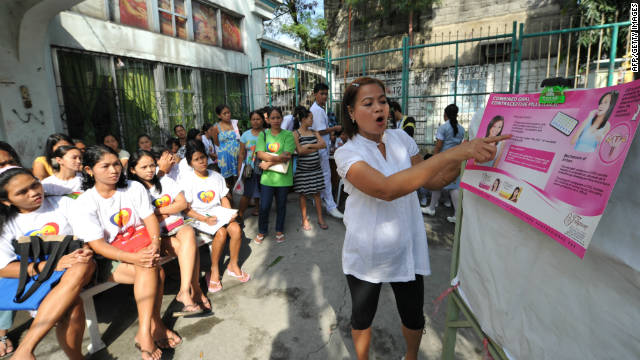
CNN
The world’s population has more than tripled since I was born in 1938. On Monday, our world’s population is expected to hit the milestone of 7 billion people — up from 2.5 billion in 1950 — with almost all of the growth expected to happen in the cities of less developed countries. This means that the problems the world faced when I was a child are even more urgent now for my grandchildren.
If fertility rates continue at expected levels, the world’s population is likely to reach 10.1 billion in the next 90 years. Based on conservative estimates, the number of people in the world should pass 8 billion in 2023, 9 billion by 2041 and 10 billion at some point after 2081.
Just take a moment to think about that. By 2100, we could have nearly 50% more people on this planet than we did at the beginning of the century, competing for the same food, water, space and attention.
One of the best ways to ensure that the 7 billionth child born will live in a safe, healthy and sustainable world is to focus on what women want and need. Researchers at the Guttmacher Institute found there are 215 million women worldwide who want the ability to time and space their pregnancies, but do not have access to effective methods of contraception. Women want to be able to deliver children safely and provide for them.
According to the World Health Organization, in developing countries, pregnancy and childbirth complications are the leading cause of death among women in their reproductive years. In the developed world, one out of 4,300 women will die as a consequence of pregnancy. That number is one in 31 in sub-Saharan Africa, and a staggering one out of eight women dies giving birth in Afghanistan. The real tragedy is the fact that one-third of these deaths could be prevented if women had access to voluntary family planning.
Universal access to voluntary family planning is a cross-cutting and cost-effective solution to achieving all of theMillennium Development Goals. In addition to reducing maternal mortality, providing voluntary family planning methods and education enables young women to avoid early pregnancy, allows more girls to attend school longer, makes it possible for women to have fewer, healthier children and helps break the inter-generational cycle of poverty. Additionally, it would reduce HIV transmission, empower women to pursue income-generating activities in their communities and promote environmental sustainability.
Focusing on these needs is also a smart investment. There is no better value for the money than international family planning, which provides a higher return on investment than almost any other type of development assistance. Researchers at the Guttmacher Institute have found that providing quality reproductive health care and modern contraceptives to all women who want and need them reduces the cost of maternal and newborn care for each dollar invested, resulting in a net total savings of $1.5 billion.


















